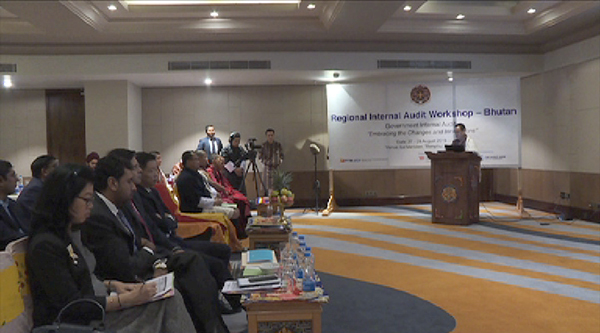 Enhancing competencies for internal auditors and retaining professionals are two challenges faced by the Internal Audit Service under the Ministry of Finance.
Enhancing competencies for internal auditors and retaining professionals are two challenges faced by the Internal Audit Service under the Ministry of Finance.
The Finance Secretary Nim Dorji says most of the internal auditors in the country are appointed without any basic training on internal auditing.
“Also, due to a shortage of internal auditors, internal auditing units are managed by one internal auditor. In such cases, internal auditors firstly lack guidance. And when they are placed in agencies, they are also assigned with multi-task to carry out other responsibilities which broadly would help to strengthen the services but at the same time dilute the role the internal auditor.”
The Internal Audit Service is also faced with challenges of retaining professionals. Although the government initiated professional allowances and incentives for internal auditors, the attrition rate has been increasing over the years.
In 2016-2017, the attrition rate was 10.92 per cent but it increased to 18.92 in 2017-2018.
“Also, meeting up with the expectation of stakeholders is another challenge. Our stakeholders have various expectations from internal auditors from doing a transition based audit to performance audit. This is all because we do not have professional institutes in the country to actually capitalise all,” Tandin Phurba, the Internal Auditor, Central Coordinating Agency, said.
The Internal Audit Service was established in 2000 with 17 internal auditors to strengthen good governance and improve the effectiveness of management and internal control system.
Currently, with only 27 internal auditors placed in various ministries and agencies, six districts do not have internal auditors and only three autonomous agencies have internal auditors.
Meanwhile, the country’s internal auditors attended a two-day regional internal audit workshop held in Thimphu with other participants from six different countries. The collaborative workshop, which ended today, was aimed at building competencies of internal auditors.






